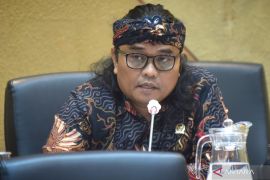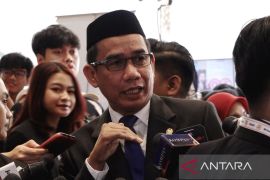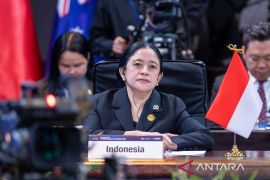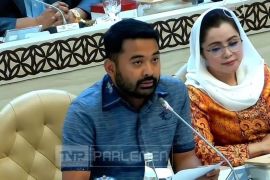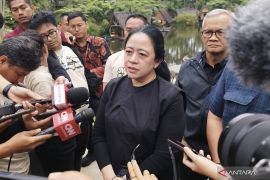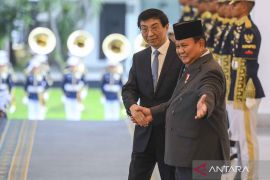"Commission I hopes that the government will not trim the defense ministry`s/military`s budget as it has to implement many priority programs," Commission I Deputy Chairman T.B. Hasanuddin said.Jakarta (ANTARA News) - Commission I on Defense Affairs of the House of Representatives (DPR) hopes that the government will not cut the defense budget as the Ministry of Defense has several priority programs.
"Commission I hopes that the government will not trim the defense ministrys/militarys budget as it has to implement many priority programs," Commission I Deputy Chairman T.B. Hasanuddin remarked here on Tuesday.
Hasanuddin noted that the defense ministry had several priority programs. The government has yet to discuss allocations for these programs. The budget concerns efforts to build the strength of the Air Force, Army, and Navy. After all, the situation in the South China Sea is getting tense.
"The budget is also needed to continue the financing of spare parts for armed systems that have been purchased," he said.
Hasanuddin, who is a politician of the Indonesian Democratic Party of Struggle, affirmed that the defense budget will be used to finance security operations, particularly sea and air patrols, which of late need to be conducted urgently.
The patrols are needed to maintain the states sovereignty, particularly in the border areas.
"The government, in this case the finance ministry, needs to give attention to the three reasons," the lawmaker emphasized.
However, he admitted that the governments plan to cut its expenditure by Rp133 trillion in the 2016 revised state budget was necessary and could not be avoided as the states revenues are forecast to not meet the set target. Yet, the budget cut for the defense ministry and the military should not be carried out.
Earlier, Finance Minister Sri Mulyani Indrawati had forecast that tax revenues would fall Rp219 trillion short of the target, and the deficit had the potential to hinder budget deficit performance.
As a result, the ministry has proposed a cut of some Rp65 trillion in spending by ministries and state agencies and of some Rp68 trillion in fund transfers to regions.
"The Finance Ministry, the office of the coordinating minister for economy, and the National Development Planning Board (Bappenas) would streamline spending without derailing priority programs," Sri Mulyani affirmed.
Chief Economic Minister Darmin Nasution said the state revenues until the end of the year would not meet the target set in the revised state budget. Hence, adjustments to the governments expenditure should be made.
"We have discussed about the shortfall in several sources of revenue," Darmin stated after attending a cabinet plenary meeting chaired by President Joko Widodo on Wednesday, August 3.
Last month, former finance minister Bambang Brodjonegoro had noted that the budget deficit had widened, almost tripling year-on-year in the first half of 2016 as a result of high government spending and shortfall in state tax revenues.
The deficit surged to Rp230.7 trillion in the first six months of the year, or 1.83 percent of the countrys gross domestic product (GDP) from Rp84.3 trillion, or 0.73 percent of the GDP in the same period last year
"Two reasons for the widening deficit were the governments spending of Rp113 trillion higher and state revenues of Rp33 trillion lower than those recorded in the same period last year," Bambang remarked at a working meeting with the Budget Commission of the DPR in Jakarta on July 20.(*)
Editor: Heru Purwanto
Copyright © ANTARA 2016

